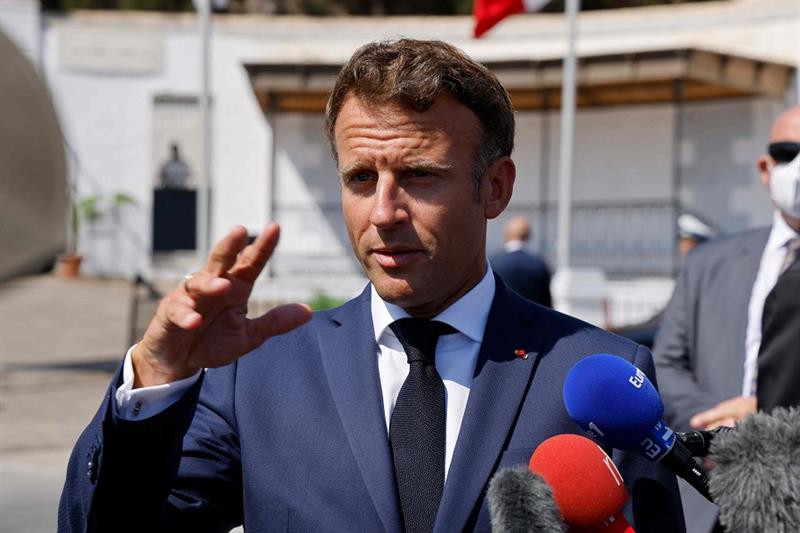
French President Emmanuel Macron speaks to the press after visiting the Christian cemetery of Saint-Eugene in Algiers on August 26, 2022. AFP
"The British people, the United Kingdom, is a friendly, strong and allied nation, regardless of its leaders, and sometimes in spite of its leaders or the little mistakes they may make in grandstanding," Macron told reporters during a visit to Algeria.
Truss, 47, leads former finance minister Rishi Sunak by wide margins in polls of the Tory grassroots set to choose their next leader, who will then become prime minister.
On Thursday, asked a question at a hustings event, she told applauding Conservative party members: "If I become prime minister, I would judge him on deeds not words."
Truss added: "The jury's out."
Britain and France are allies at the heart of the North Atlantic Treaty Organization (NATO) political and military alliance, but have differences on a number of issues, particularly after Britain's departure from the European Union.
The two countries also have contrasting approaches to Russia's invasion of Ukraine.
During a press conference after visiting a cemetery in Algiers, Macron responded: "If we are not capable, between France and Britain, of saying whether we are a friend or enemy -- the term is not neutral -- we are heading towards serious problems."
He said "it's never good to lose your bearings in life" and added that if asked the question, he wouldn't hesitate "for a second".
"The United Kingdom is a friend of France," Macron said.
At the same time, Macron was asked during a visit to Algeria about the chances of success in reviving the 2015 agreement between Tehran and world powers, but Macron declined to speculate.
"Now the ball is in Iran's court," Macron told reporters.
Momentum has built to revive the landmark agreement that gave Iran sanctions relief in exchange for curbs on its nuclear programme.
The parties to the 2015 deal with Iran saw it as the best way to stop the Islamic republic from building a nuclear bomb -- a goal Tehran has always denied.
Former US president Donald Trump unilaterally withdrew from the pact in 2018, reimposed crippling economic sanctions on Iran, which in turn began pulling back on its commitments.
Just weeks after prospects of a revived deal looked dead despite months of talks, the European Union put forward on August 8 what it called a final text to restore the agreement.
Iran came back last week with a series of proposed changes, to which the United States formally responded on Wednesday.
"I think that it's an agreement if it is concluded in the terms which are presented today, which is useful," said Macron, whose country is one of six which signed the original deal with Iran.
It is also "better than no agreement", he added.
"But it's also a deal which does not settle everything. We know that," Macron said, referring to Iran's regional role and alleged "destabilisation" efforts.
Short link: